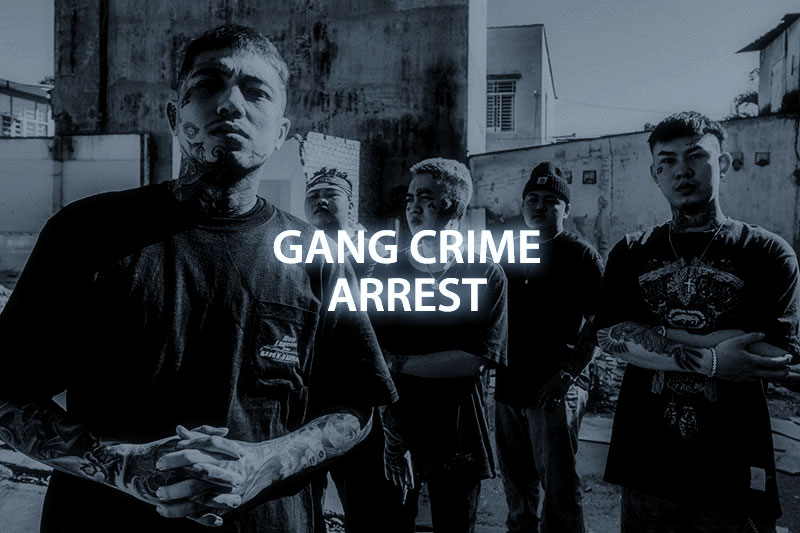The issue of juvenile gang involvement presents a complex challenge for the justice system, one that balances on the fulcrum of two competing philosophies: rehabilitation and punishment. The traditional punitive approach to adult offenders contrasts sharply with the evolving treatment of juveniles, which increasingly emphasizes intervention and support for change. California, along with many other states, is at the forefront of this shift, developing policies and programs focused on the rehabilitation of juvenile gang offenders. In this blog post, we explore how these two approaches differ and why the Golden State is prioritizing rehabilitation for its younger residents caught up in gang activities.
Treatment of Juvenile vs. Adult Gang Offenders
Adult gang offenders often face severe judicial consequences, including long-term imprisonment, hefty fines, and the lasting burden of a criminal record. These punitive measures are based on the premise that adults are fully culpable for their actions and that strict punishment will serve as a deterrent to future criminal behavior and recompense to society.
In contrast, juvenile offenders are treated with greater leniency due to their age, potential for change, and the developmental factors that may contribute to their criminal behavior. The justice system recognizes that children and adolescents are still undergoing critical cognitive and emotional development and thus, may not fully comprehend the consequences of their actions or be entrenched in their ways.
California’s Focus on Rehabilitation
California’s juvenile justice system has increasingly pivoted towards rehabilitation and away from harsh punishment, underpinned by the understanding that early intervention can redirect young lives and help prevent the cyclical nature of gang involvement and criminal behavior. The state has made a concerted effort through various initiatives to offer juveniles second chances and support for personal growth. Some of these efforts include:
1. Juvenile Diversion Programs: These programs divert youth away from detention and the formal criminal justice process, connecting them with services such as counseling, education, and community support, aimed at addressing the underlying issues that may have contributed to their gang involvement.
2. Education and Vocational Programs: Education is a cornerstone of California’s rehabilitation process, with programs in place to ensure juvenile offenders receive proper schooling and vocational training. These initiatives are designed to provide practical skills and opportunities that create alternatives to gang life.
3. Community-Based Solutions: The state invests in community-based programs that work with at-risk youth and their families to provide supportive environments. These programs focus on gang prevention through mentoring, conflict resolution training, and outreach activities, fostering community resilience against gang influence.
4. Mental Health and Substance Abuse Services: Understanding the role mental health and substance abuse play in juvenile crime, California prioritizes therapeutic services that address these root causes, helping to heal and prepare juvenile offenders for a healthier future.
5. Collaboration with Youth Justice Advocates: California collaborates closely with youth justice advocates to continuously reform and improve the juvenile justice system, ensuring that it remains focused on rehabilitation and positive outcomes for young people.
The Path Forward
In recognizing the unique position of juvenile gang offenders, California’s efforts signify a belief in the potential for change and recovery. Rehabilitation over punishment reflects a profound investment in the future — not just of the individuals concerned, but of society as a whole. By providing support systems, avenues for education, and opportunities for meaningful engagement, the state endeavors to guide these young individuals toward better paths, enabling them to become productive and contributing members of their communities.
Gang Crime Defense Attorney Caryn Warren Can Help!
For these young offenders, the focus on rehabilitating rather than punishing is a lifeline; one that underscores the principle that their crimes do not define their entire lives. It’s a perspective grounded in hope and the power of transformation, with California leading by example in the national conversation about how best to address juvenile gang involvement.
Personal Injury & Criminal Defense Services Available Throughout
Greater Sacramento, Yolo, Placer, and Solano Counties
Antelope, Arden-Arcade, Auburn, Benicia, Carmichael, Citrus Heights, Davis, Dixon, Elk Grove, Fairfield, Fair Oaks, Folsom, Galt, Gold River, Granite Bay, Iselton, Lincoln, Loomis, North Highlands, Orangevale, Rancho Cordova, Rio Linda, Rio Vista, Roseville, Rocklin, Sacramento, Suisun City, Vacaville, Vallejo, West Sacramento, Winters, Woodland

